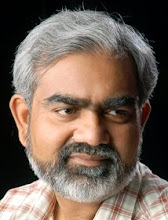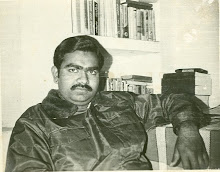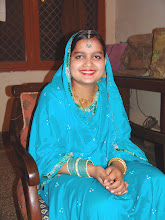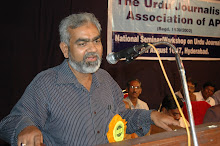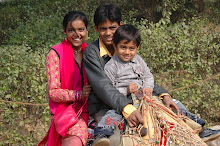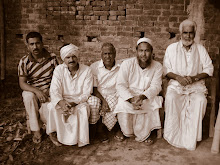By Anjum Naim
Scaling the heights of popularity through her first-of-its-kind novel “Madras on Rainy Days”, California based, Indian born American author, Samina Ali is busy, these day, in giving final touch to her another work. Written on “Women Empowerment”, it has the perspective of women’s rights in Islam. Being asked whether the forthcoming work is a non-fictional expression of her novel, Samina Ali says that she is neither a mere writer nor she writes only for creative expression. Instead she uses writing as a tool to achieve her goal, which is “My quest for women’s rights”
It is not uncommon to discuss women’s rights in American society, but when an Indian American Muslim women presented her life experiences in a multi-cultural perspective, in the form of a fiction, a sort of ideological freshness was perceived. And this was the factor behind novel’s popularity. Born at Hyderabad, a city in south India, a hub of Muslim culture and grown up in America, Samina Ali whose parents make a conscious representation of Indo-Islamic culture, feels the pain of dilapidated lives in multi-cultural upbringings. Moreover, it is not a tragic aspect of life exclusive to Samina Ali, which has been depicted by Laila, the main character in her novel. Rather, it is heartache of all those Lailas who observe helplessly, their rights being trampled by self-proclaimed values. “How the rights given by Allah, the Almighty, and his prophet have been sacrificed in the name of self-proclaimed values?” Samina Ali raises a question. It is why; Samina Ali considers her aforesaid novel, as “ a young women’s journey from possession to self-possession”.
Completing her graduation in English from the university of Menosota and M.F.A from the University of Oregon, Samina Ali migrated to America along with her parents when she was only 6 months though her parents settled in America, they maintained their relations with Hyderabad by visiting India every year for at least five or six months. Six months in Menosota and six months in Hyderabad- for the parents, it was nothing to bother about but his split identity always perturbed her. Samina Ali expresses this agony in the novel-through its main character laila;
“Growing up, it was always so confusing to be in both places.
I would go to school there and all the kids would point and say,
‘Hey, look, the Indian girl is back. Then I’d suddenly be dropped in to school here,
and the girls would say,‘The American is back, I never fit in.”
She was married, at 19, to a young man hailing from an affluent Muslim family in Hyderabad. Next two years were rightmerish for Samina Ali. Marital life was no less than a wrath. Such was the constraints of circumstances that Samina Ali, grew up in America, could not tell her parents, for two years altogether, that the man she was married with, involuntarily, is a homosexual and that her marriage had never been consummated. After desertion from her first husband, she remarried in America. It was also proved fragile and she was divorced after a year. “Madras on rainy days” is a life – sketch of Samina Ali wherein her role id depicted by laila. Samina Ali presented her life-experiences in details through Laila. Samina Ali says, “ My writing is an individual’s search for independence particularly that of a Muslim woman.” She wants to prove that Islam has given all those rights to women, which have always been acceptable to any civilized society irrespective of time and space. Explaining the rights, she says , “Rights over their bodies, right over their marriages, rights over their futures.”
She believes that many have no access to these rights only because they do not opportunity to avail them.
Samina Ali seems to be highly impressed by the writings of Tony Morrison and Paule Marshall. The former is a noble laureate, American author who presented anguish and agony of womenfolk in an artistic way while the latter is a Brooklyn based, representative author of Black Literature who authored her famous novel (1959) “Brown Girl, Brown stones.’ She says,“Their work left a deep imprint on me because it was the first time I read novels not written by white authors, so the first time I identified with characters and their experiences.”
Paule Marshall’s deep influence on her writings can be assessed by her novel “Madras on rainy days” wherein not only the ideas but characters and story-back-ground too seem to be borrowed from, “Brown Girl, Brown stones,” to a large extent. In both of them the key character is a young woman who is a victim of multi-cultural issues and social afflictions, mainly because she is a woman.
Samina Ali when advocates women’s rights, she talks not only about individuals but include all those social and moral traditions which influence individual’s life in every society. Not to say of the sub-continent, even in countries like America, women’s entry into mosques is not approved under culture traditions and a secluded balcony is arranged for womenfolk. When some educated women, under the banner if an organization, Daughter of Hjar, raised their voices against this male chauvinism and demonstrated infornt of the mosque of Morgan Town, Samina Ali registered her active participation in the demonstration.
Her novel “Madras on Rainy Days” published in 2004 by an extremely reputed New york based printing house, Farrar, straus, Giroux, was awarded the Rona Jaffe Foundation fiction award , which is given annually to women writers who demonstrate excellence and promise in the early stages of their careers., then PEN/Hemingway award and then again California Book Reviewer Award. The novel’s rapid popularity was, perhaps, due to its being a novel by an original new voice in international fiction which portrays a young Muslim woman’s Journey from possession to self-possession.
It is an autobiography, which mirrors the wounds of a moaning and groaning society. In the words of Samia Ali, herself ;
“This is not just something imagined. This is something I endured”.
Tuesday, November 18, 2008
Subscribe to:
Comments (Atom)

